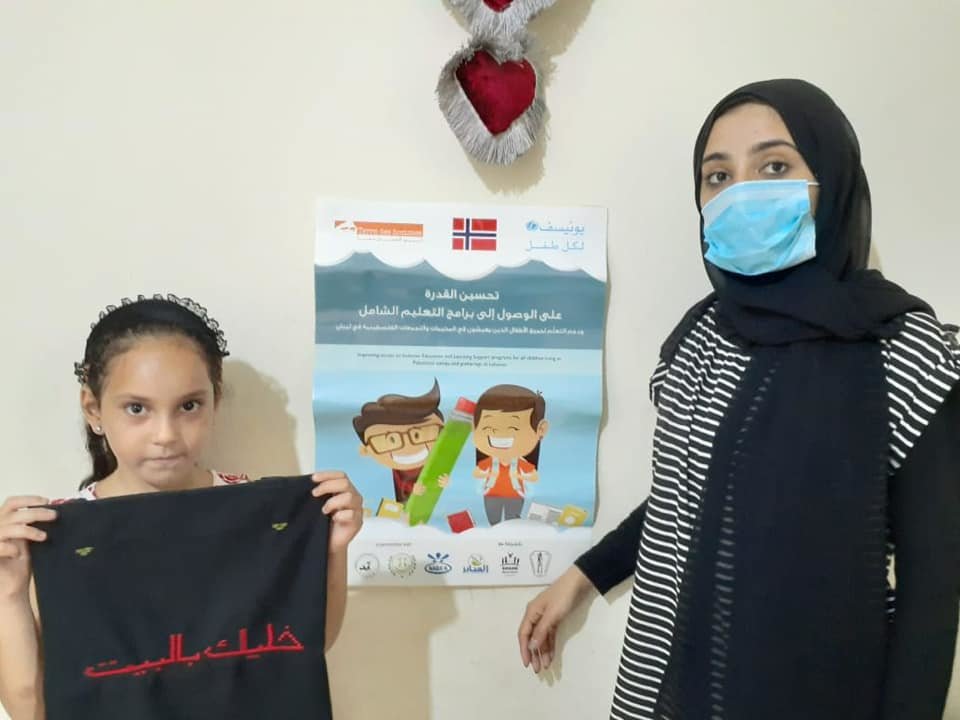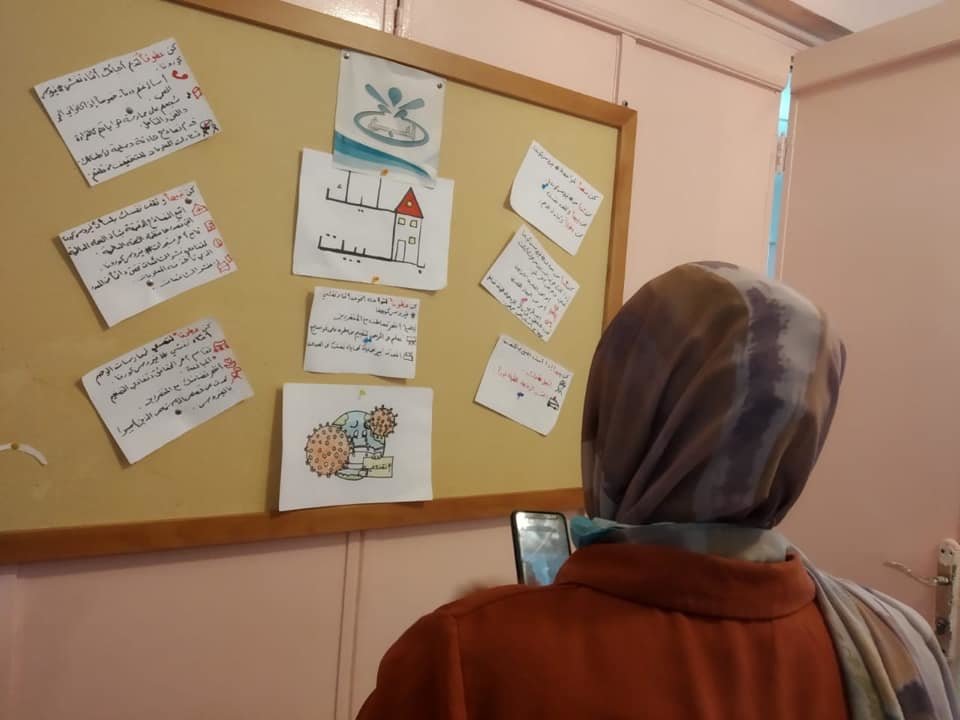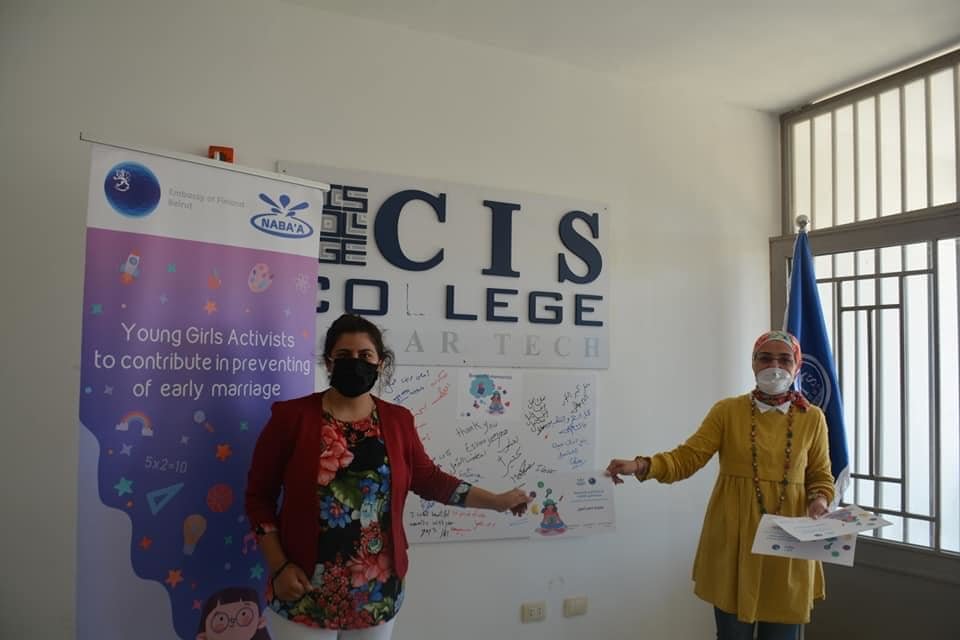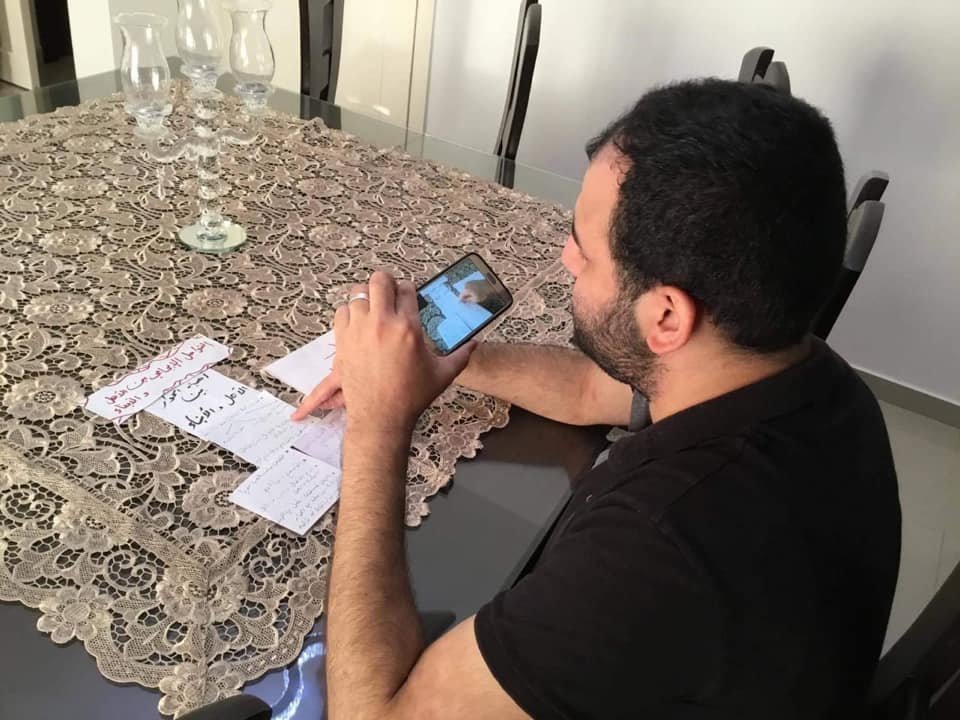By Hiba Hamzi | Program Coordinator
Background during and after the implementation of the project;
the capital Beirut was shaken byhuge explosion at the seaport, which completely destroyed the port and damaged nearly 75,000 houses adjacent to the port. The port and surrounding neighborhoods are now a wasteland of devastated buildings and crushed vehicles. With smoke still rising at the blast site, rescue workers are digging through the rubble in search of victims trapped underneath. Health officials said the blast killed 160 people and wounded about 6,000 and Hundreds of people have been left homeless.
Even before the Port Blast, Lebanon already had more than its share of calamities. An extended economic crisis has thrown its currency into a free fall, a situation worsened by the COVID-19 pandemic. Due to this situation, families alongside the sea side become more vulnerable and experiencing more challenges and problems effecting their daily life especially when it’s come to shelter , Hygiene and food items .
Lebanon is entering now the worst economic crisis threatening its stability since the civil war, which took place between 1975 and 1990. Poverty has become the fate of social groups of Lebanese, who depend on their hard currency savings. According to save the children international 1 million person living in Beirut does not have enough money to secure their food needs due to the financial crises including 564.000 children. This scenario was communicated before the explosion, while the situation now needs a huge effort with a comprehensive emergency intervention to contain the catastrophic effects of the destruction on the level of infrastructure and homes and to respond to the basic needs of the people, especially with regard to the right to live in dignity. Until this moment the government fail to contain the catastrophic incident and lose control altogether, this means that we will inevitably enter into an unknown tunnel.
Naba’a Achievements; During the last period, The most highlighted achievements during the last period;
- Distance learning is one of methods applied by most NGOs, Governmental schools UNRWA and INGOs in working with children and parents from the begining of March until now (med April 2020), while we are now in the phase of evaluating that experience to plan for May.:
we are new to this method , but trying to find our way without doing Harm , investing in the training conducted by the partners ( SCI – UNICEF .. ) ensuring better educational opportunities for children during COVID – 19 pandemics
1- Creating the WU groups (2 groups per teacher, 12 children per group
2- Visualization of the lesson (video, illustration, PP)
3- Sharing lessons with the group.
4- Parents as facilitators; Send parents a notification in order to facilitate the process with their children.
5- Back to the group 2 Hrs later to handle their questions and check their understanding; Awarding children
6- Feedback to parents regarding their children achievements
- Fostering and reshape the lives of the most marginalized 230 Lebanese, Syrians and Palestinians young and adolescent girls through empowering the vocational skills of the most marginalized Lebanese girls and enrolling them in the vocational training center to study a vocational profession, this might help in preventing them to get married in the early ages and to think of their future in addition to provide an opportunity for them to find a job in the Lebanese community and to integrate with into it, so that their socio-economic situation will be enhanced as they are able to afford their daily expenses without being a burden on their families.
- We encourage our team to use new technologies to communicate and follow-up continuously throughout the day, and some professors expressed that they feel tired more than the normal working days before the crisis of Corona.
- In coordination with the school administrations, we worked to provide them supportive materials for the grades 1 to 9, which was appreciate from the principals for this the initiative, which helped students in their learning.
- We have reached 1250(686F:564M) students to benefit from this methodology through the videos that had been sent to the direction of school.
- For the grade from 1 to 9, Around 80 Nabaa teachers work with a group of children (Between 15 to 20 children) each according to their specialist.
Psychosocial & case management;
- Throughout the Corona period, work groups have been established through What’s Up, which included a group of women, girls, and adolescents for the purpose of communicating with them and raising their awareness as well. Add to this, the individual cases have been followed up through WhatsApp, as it is worth mentioning that a group was created to follow up the collective cases. On the other hand, we’ve communicated with girls where several awareness sessions have been provided, such as COVID-19, anger management, emotional distress, and Post-traumatic stress disorder (PTSD). As for the teenagers, we’ve communicated with them as well as we gave them awareness sessions about COVID-19, time management, and emotion management.
Case study
- Code :1892017
- DOB: 2009
- Gender: Male
- Nationality: Palestinian
- Grade: 5
- Hobbies: Drawing
- Number of family members: 4 (including the mother and father as well)
- He’s the first child
- A brief about the child’s life: The child is living with his family, consisting of a brother and a younger sister, as he lives in a small house in Ein El-Helweh camp, which consists of only two rooms. he is very hyper active as he plays all day in the street and causes problems with the neighbors. As he used to go to a school located near his home, and his academic performance were bad since he has hyperactivity disorder and lack of concentration in the classroom as well. The teachers used to feel angry because of his excessive movement and his many questions, which led the psychological counselor at the school refer him to Nabaa’ Association for a follow-up. Noteworthy that, the child is intelligent and has the skill of drawing, but he has hyperactivity disorder and lack of concentration that negatively affects his school and social life.
The economic situation: it is average since the father works two shifts, he works in a store in the morning. whereas, he works as a bodyguard for one of the parties in the camp in the evening.
Health situation: it is good, since the child does not suffer from any physical diseases
Social situation:
The Childs’ relationship with his father: It is a bad relationship since he used to feel upset regarding his Childs’ hyperactivity disorder and the problems he was causing with the school and neighborhood. However, after contacting the father and understanding his son's problems and developing a plan with him on how to deal with his child, the relationship became good, as well as the father started to talk to his child more, go out with him, teach him and make him feel that they are close to each other.The Childs ’relationship with his mother:
It is a bad relationship, the mother has many pressures, since her mother and her sister are living with her, which causes them to interfere in raising the child. She is unable to control her emotions as she doesn’t know how to behave well with her son, in addition to that she considers herself that she can’t handle it anymore. Noteworthy that, the mother’s personality is weak.
The Childs’ relationship with his siblings:
It was bad but it became better after the work sessions and activities that have been done, so he became interested in them and playing with them.
The problem in which the boy is suffering from:
Hyperactivity disorder and lack of concentration, knowing that this disorder affects his academic performance and his relationships with his peer, his family, and his teachers as well.
Data collection:
The child - the school counselor – the father
Methods of intervention:
Recommendations:
Links:
Project reports on GlobalGiving are posted directly to globalgiving.org by Project Leaders as they are completed, generally every 3-4 months. To protect the integrity of these documents, GlobalGiving does not alter them; therefore you may find some language or formatting issues.
If you donate to this project or have donated to this project, you can receive an email when this project posts a report. You can also subscribe for reports without donating.
Support this important cause by creating a personalized fundraising page.
Start a Fundraiser


